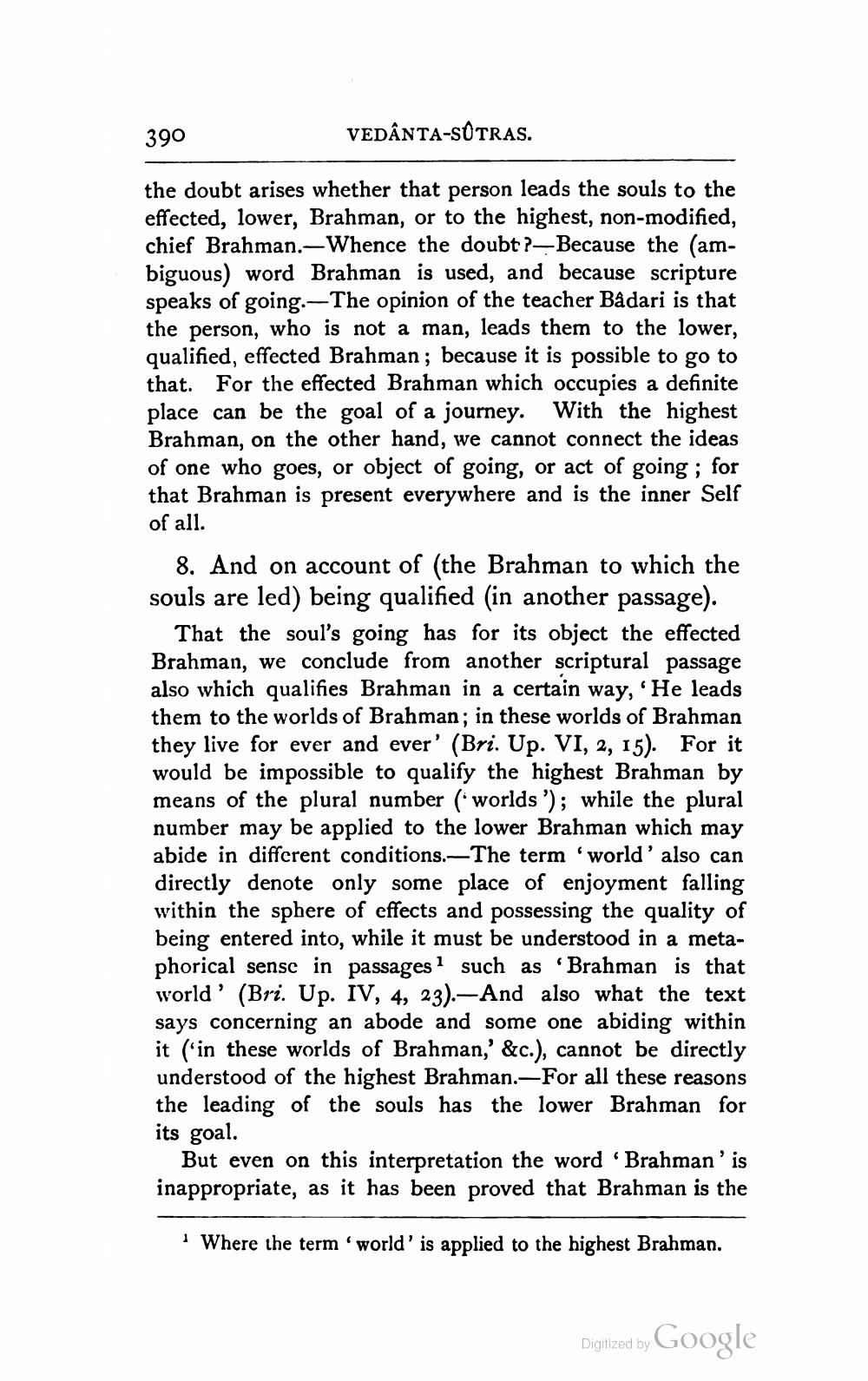________________
390
VEDÂNTA-SÛTRAS.
the doubt arises whether that person leads the souls to the effected, lower, Brahman, or to the highest, non-modified, chief Brahman.-Whence the doubt? Because the (ambiguous) word Brahman is used, and because scripture speaks of going.–The opinion of the teacher Bådari is that the person, who is not a man, leads them to the lower, qualified, effected Brahman; because it is possible to go to that. For the effected Brahman which occupies a definite place can be the goal of a journey. With the highest Brahman, on the other hand, we cannot connect the ideas of one who goes, or object of going, or act of going ; for that Brahman is present everywhere and is the inner Self of all.
8. And on account of (the Brahman to which the souls are led) being qualified (in another passage).
That the soul's going has for its object the effected Brahman, we conclude from another scriptural passage also which qualifies Brahman in a certain way, 'He leads them to the worlds of Brahman; in these worlds of Brahman they live for ever and ever' (Bri. Up. VI, 2, 15). For it would be impossible to qualify the highest Brahman by means of the plural number (worlds '); while the plural number may be applied to the lower Brahman which may abide in different conditions.—The term 'world' also can directly denote only some place of enjoyment falling within the sphere of effects and possessing the quality of being entered into, while it must be understood in a metaphorical sense in passages such as 'Brahman is that world' (Bri. Up. IV, 4, 23).—And also what the text says concerning an abode and some one abiding within it in these worlds of Brahman,' &c.), cannot be directly understood of the highest Brahman. For all these reasons the leading of the souls has the lower Brahman for its goal.
But even on this interpretation the word 'Brahman'is inappropriate, as it has been proved that Brahman is the
1 Where the term
world' is applied to the highest Brahman.
Digitized by
Digized by Google




